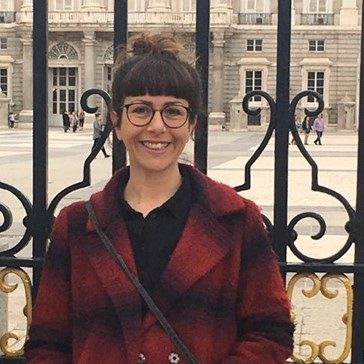
Janina Krause
studied Social and Cultural Anthropology and European Ethnology at Georg-August-University in Göttingen. After graduating she worked as an assistant researcher at the Institute for History, Theory and Ethics in Medicine at RWTH Aachen. Since July 2016 she has been a research assistant at the Institute of Cultural Anthropology and European Ethnology at the Goethe University in Frankfurt.
Her interest of research lies in the intersection of gender studies and medical anthropology. Her PhD-project is on non-invasive prenatal medicine and the doing of autonomy.
Publications
Core Publication
Krause, J. (2018). Insights from the Perspective of Cultural Anthropology: A Discourse Analysis of Representations of Genes, Reproductive Medicine and the Fetus in Popular Media Regarding the Female Body. In Schmitz, D., Clarke, A. & Dondorp, W. (eds.), The Fetus as a Patient – A Contested Concept and its Normative Implications. Routledge.
Research
Doing Reproductive Autonomy (PhD Project, since 2017)
Since a few years, there has been a significant turn in the field of genetic prenatal diagnosis. Depending on the method, prenatal diagnosis was bound to a higher or lower risk of miscarriage. Since the year 2011 a new technology is available, that manages analyzing the fetal genome through a non-invasive method simply by examining one drop of the mother’s blood.
Non-invasive prenatal testing (NIPT) is used to detect a fetus’ risk for trisomy 13, 18 and 21 and for so called sex chromosomal anomalies and can be undertaken at a relatively early point in pregnancy (eleventh week). Implementing this technology within daily clinical practice aroused controversial public debates on arising challenges.
Since NIPT must be financed privately – despite an ongoing controversy in the German government on cost coverage through health insurance – its economic character causes criticism and is valuated as a further step in a process of economizing and technologizing pregnancy.
Various groups – disability activists, pro-life and pro-choice supporters – fear that disability stigmatization grows stronger again, abortion rates might increase and that social responsibilities become women’s private concerns and their body the arena of biopolitical negotiations. But how much space do those concerns leave for the user’s active participation? Do pregnant women depend on gender specific economic logics of an aggressive market or are they able to define their reproductive life autonomously? Where are the limits of those presumed antagonists – economy versus autonomy – and what do we find instead?
What aspects shape the process of decision making? And how do such processes look like? What practices do users develop in handling NIPT? How is genetic knowledge entering the users daily lifes and what is it doing there?
Under the working title “Doing autonomy – a medical anthropological perspective on NIPT” qualitative research methods – participant observation and interviews with users and experts from the medical and economic field – are used to answer these questions.